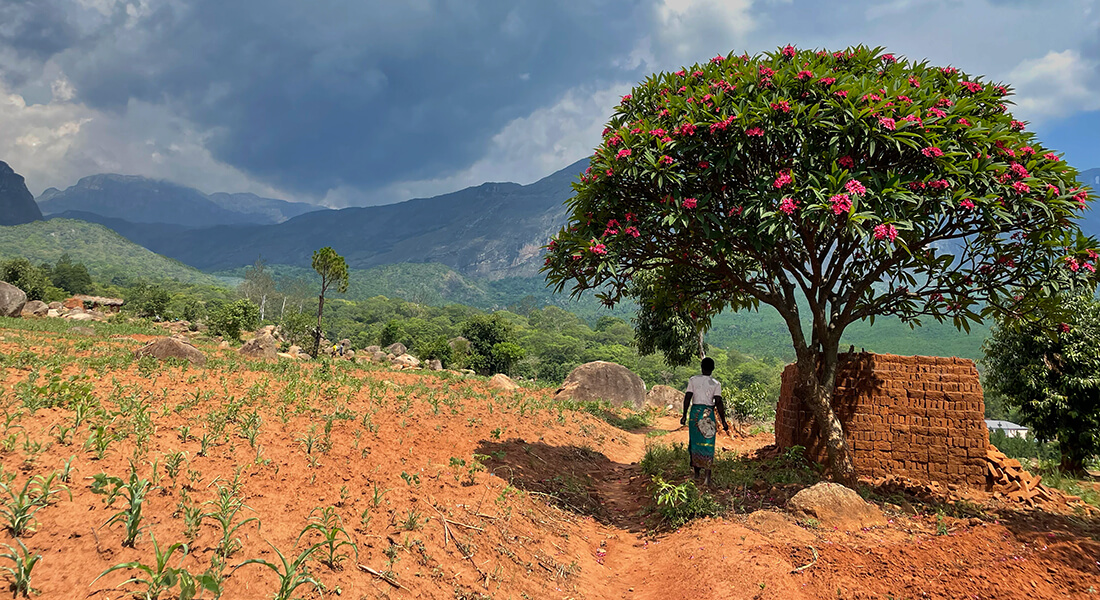Trees are key to better nutrition and climate in Malawi
One solution to tackling both climate problems and poor nutrition at the same time is: trees. When people get food directly from the trees on their farms, they get much better nutrition, especially the women in areas with many trees get more vitamin A, iron and zinc, research shows.

Today, poor quality diets are the largest contributors to global morbidity, with one in three people suffering from a form of malnutrition. In countries like Malawi, where a large percentage of households depend on agriculture for their livelihoods, people’s diets often depend on what crops they grow. Yet policies in Malawi designed to improve food security often focus on increasing the productivity of calorie-rich grains, which have led to the simplification of both rural diets and landscapes.
As part of her PhD, postdoctoral fellow Emilie Vansant set out to investigate the role of trees as a solution for improving human and environmental health in tandem. While the ecological benefits from retaining trees agricultural landscapes is well documented, less is known about how trees can deliver benefits for rural people’s diets.
The research – just published in Nature Food – investigates how trees can support people’s dietary quality. Using quasi-experimental methods, Vansant found that women living in areas with greater tree cover have higher vitamin A and iron adequacy in the dry season, and higher zinc, vitamin A, iron and folate adequacy in the wet season. Specifically, women from households that directly source food from on-farm trees have higher levels of micronutrient adequacy across seasons. Critically, the analysis illustrates that food trees on farms mediate the relationship between tree cover in the landscape and micronutrient adequacy.
“In other words, several broad-scale studies in Sub-Saharan Africa have already shown that people tend to have better diets in areas with higher tree cover. Our research evidences that food trees on farms can help explain why we see this positive relationship”, says Emilie Vansant.
Most Malawians cannot afford to purchase the foods necessary to achieve a healthy diet on a daily basis. These findings, by highlighting the benefits of retaining trees in agricultural landscapes as a source of nutritious foods, identify an avenue by which households can improve their diets by non-monetary means. Vansant’s publication supports policies and programs that use trees to synergistically address environmental and nutrition objectives for the well-being of people and nature.
The paper in Nature Food will be available here: https://www.nature.com/articles/s43016-024-01028-4
The study was part of the ERC funded FORESTDIET project.
Contact
Emilie Vansant
ecv@ign.ku.dk
+45 50 23 58 80
